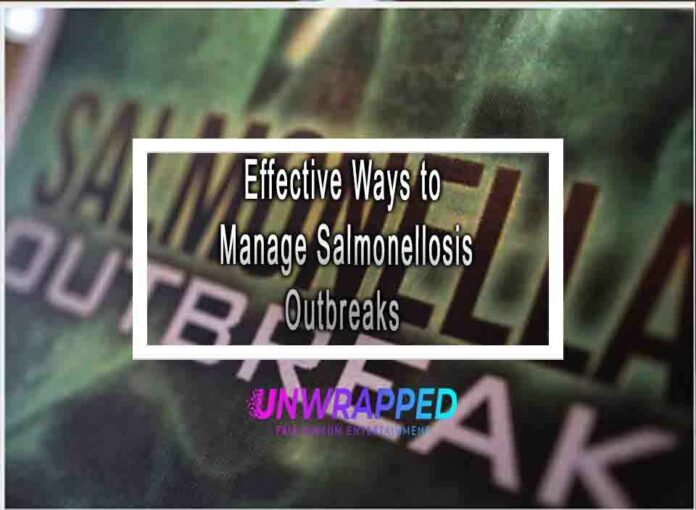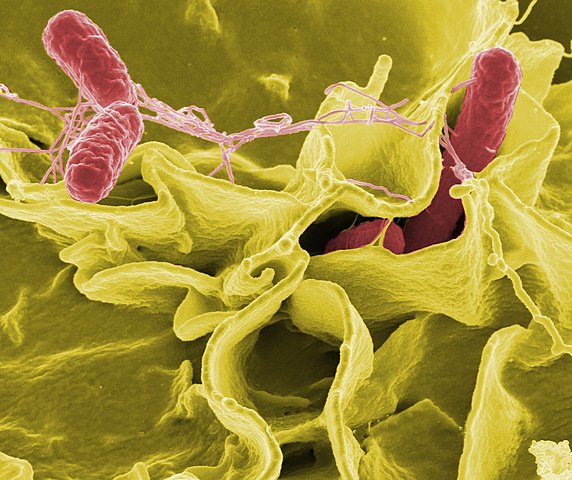Salmonellosis is a foodborne illness caused by the Salmonella bacteria. Managing outbreaks of salmonellosis is essential to prevent further illnesses and protect public health. Here are effective ways to manage salmonellosis outbreaks:
1. Rapid Detection and Diagnosis:
- Early detection is crucial for managing a salmonellosis outbreak. Healthcare professionals should promptly diagnose and report cases of salmonellosis to public health authorities.

2. Identifying the Source:
- Public health officials work to identify the source of the outbreak. This often involves interviewing patients to determine what foods they have consumed and where they might have been exposed to Salmonella.
3. Surveillance and Investigation:
- Public health agencies, such as the Centers for Disease Control and Prevention (CDC), conduct surveillance and epidemiological investigations to determine the extent of the outbreak and identify commonalities among cases.
4. Food Safety Measures:
- Inspect and investigate food establishments, farms, and distributors that may be linked to the outbreak. Implement strict food safety practices and regulations.
5. Recall Contaminated Products:
- If a specific food product or brand is identified as the source of the outbreak, recall and remove the contaminated products from the market.
6. Communication and Public Awareness:
- Public health authorities and agencies must communicate transparently with the public, healthcare providers, and food industry stakeholders about the outbreak. Providing information on symptoms, prevention, and safe food handling is crucial.
7. Isolation and Quarantine:
- Isolate and treat infected individuals, and quarantine those who may have been exposed. Preventing the spread of the infection is essential.
8. Enhanced Surveillance and Testing:
- Increase surveillance and testing for Salmonella in food products, animal sources, and environmental samples to trace the source of contamination.
9. Hygiene and Safe Food Handling:
- Promote proper hygiene and safe food handling practices, including handwashing, cooking food to appropriate temperatures, avoiding cross-contamination, and preventing the consumption of raw or undercooked eggs or poultry.
10. Collaboration:
- Outbreak management often involves collaboration between local, state, and federal health agencies, as well as international health organizations for tracking multistate or international outbreaks.
11. Continuous Monitoring and Response:
- Continue to monitor and investigate cases even after the initial outbreak is contained. Ensure that control measures are effective and that there are no further cases.
12. Research and Improvement:
- Conduct research to better understand Salmonella strains and their sources. This information can lead to improved prevention and control strategies.
13. International Cooperation:
- Salmonella outbreaks are not limited to one region or country. International cooperation is essential to address global food safety issues and prevent cross-border outbreaks.
14. Vaccine Development:
- Research and development of vaccines for salmonellosis are ongoing. Vaccination may become an additional tool to prevent illness, particularly in high-risk populations.
Managing salmonellosis outbreaks requires a coordinated effort involving healthcare professionals, public health agencies, food producers, and the public. Preventative measures, early detection, and prompt response are key components of outbreak management.











